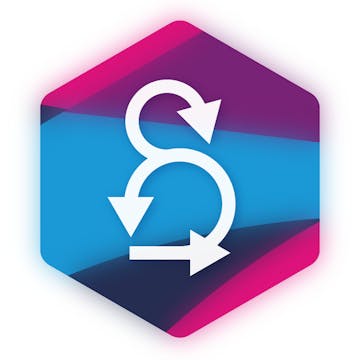
Курс «Гибкие методологии разработки высокотехнологичных продуктов» посвящён всестороннему обзору методов управления проектами по гибким методологиям с углубленным рассмотрением одной из самых популярных из них - Скрам. В нем рассматривается практика применения методов управления к реалистичным сценариям, с которыми вы столкнетесь в качестве участника agile-команды.
Вы узнаете, как гибкие методологии реализуются в современных компаниях и научитесь применять ключевые практики в своих проектах, а также сможете сравнить такие подходы с основами традиционного проектного управления.
Вы получите не только практики и инструменты для...
Read more
Good to know
Save this course
Reviews summary
Agile for beginners
Activities
Review foundational concepts
Show steps
Start the course with a solid understanding of the core concepts to build upon
Browse courses on
Agile Development
Show steps
-
Review core concepts of Agile and Scrum
-
Recall basic principles of project management
Identify an Agile mentor
Show steps
Seek guidance and support from an experienced Agile professional to enhance your learning旅程
Browse courses on
Mentoring
Show steps
-
Reach out to Agile professionals in your network or at industry events
-
Request mentorship and outline your goals
Curate a list of Agile resources
Show steps
Gather and organize valuable Agile resources for future reference
Browse courses on
Online Tools
Show steps
-
Explore online resources, articles, and tools on Agile
-
Create a repository or document to store the resources
Five other activities
Expand to see all activities and additional details
Show all eight activities
Join a study group or online forum
Show steps
Engage with peers to share knowledge, discuss concepts, and learn from different perspectives
Show steps
-
Find or join an Agile study group or online forum
-
Participate in discussions and ask questions
Explore Scrum in depth
Show steps
Delve deep into the Scrum framework to enhance your understanding
Browse courses on
Scrum
Show steps
-
Find online tutorials or courses on Scrum
-
Follow the tutorials and practice Scrum principles
Agile simulations and case studies
Show steps
Engage in simulations and case studies to strengthen your decision-making and problem-solving skills
Browse courses on
Case Studies
Show steps
-
Participate in online Agile simulations or case studies
-
Analyze the situations and apply Scrum principles
Develop a Scrum artifact
Show steps
Create a Scrum artifact, such as a sprint backlog or user story, to apply Scrum principles practically
Browse courses on
Scrum Artifacts
Show steps
-
Choose a Scrum artifact to develop
-
Gather the necessary information and follow Scrum guidelines
-
Create and submit the Scrum artifact
Attend Agile meetups or conferences
Show steps
Connect with the Agile community to gain insights and expand your knowledge
Browse courses on
Networking
Show steps
-
Find local Agile meetups or conferences
-
Attend the events and engage with professionals
Review foundational concepts
Show steps
Start the course with a solid understanding of the core concepts to build upon
Browse courses on
Agile Development
Show steps
- Review core concepts of Agile and Scrum
- Recall basic principles of project management
Identify an Agile mentor
Show steps
Seek guidance and support from an experienced Agile professional to enhance your learning旅程
Browse courses on
Mentoring
Show steps
- Reach out to Agile professionals in your network or at industry events
- Request mentorship and outline your goals
Curate a list of Agile resources
Show steps
Gather and organize valuable Agile resources for future reference
Browse courses on
Online Tools
Show steps
- Explore online resources, articles, and tools on Agile
- Create a repository or document to store the resources
Join a study group or online forum
Show steps
Engage with peers to share knowledge, discuss concepts, and learn from different perspectives
Show steps
- Find or join an Agile study group or online forum
- Participate in discussions and ask questions
Explore Scrum in depth
Show steps
Delve deep into the Scrum framework to enhance your understanding
Browse courses on
Scrum
Show steps
- Find online tutorials or courses on Scrum
- Follow the tutorials and practice Scrum principles
Agile simulations and case studies
Show steps
Engage in simulations and case studies to strengthen your decision-making and problem-solving skills
Browse courses on
Case Studies
Show steps
- Participate in online Agile simulations or case studies
- Analyze the situations and apply Scrum principles
Develop a Scrum artifact
Show steps
Create a Scrum artifact, such as a sprint backlog or user story, to apply Scrum principles practically
Browse courses on
Scrum Artifacts
Show steps
- Choose a Scrum artifact to develop
- Gather the necessary information and follow Scrum guidelines
- Create and submit the Scrum artifact
Attend Agile meetups or conferences
Show steps
Connect with the Agile community to gain insights and expand your knowledge
Browse courses on
Networking
Show steps
- Find local Agile meetups or conferences
- Attend the events and engage with professionals
Career center
Scrum Master
Agile Coach
Software Development Manager
Product Manager
DevOps Engineer
Systems Analyst
Project Manager
Quality Assurance Analyst
Business Analyst
Software Architect
Management Consultant
Data Scientist
IT Consultant
Systems Engineer
Technical Writer
Reading list
Share
Similar courses
OpenCourser helps millions of learners each year. People visit us to learn workspace skills, ace their exams, and nurture their curiosity.
Our extensive catalog contains over 50,000 courses and twice as many books. Browse by search, by topic, or even by career interests. We'll match you to the right resources quickly.
Find this site helpful? Tell a friend about us.
We're supported by our community of learners. When you purchase or subscribe to courses and programs or purchase books, we may earn a commission from our partners.
Your purchases help us maintain our catalog and keep our servers humming without ads.
Thank you for supporting OpenCourser.


